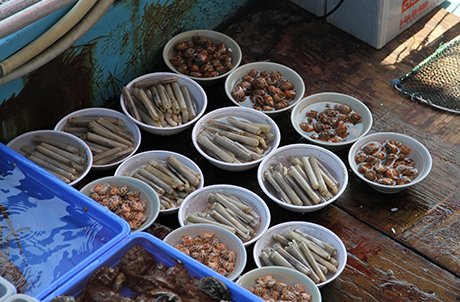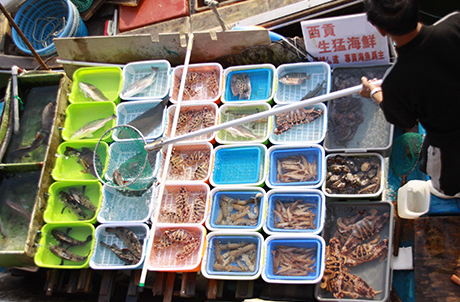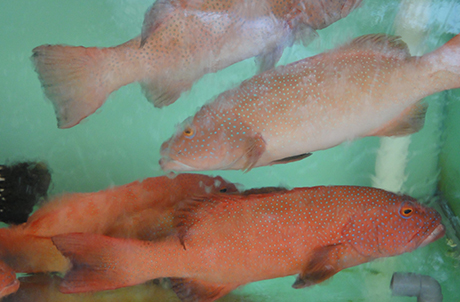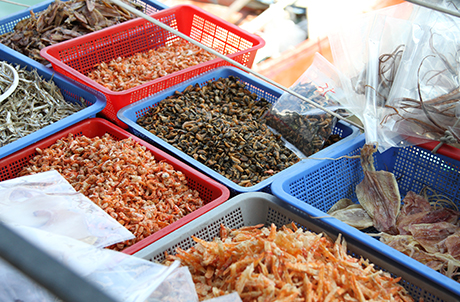Ocean Park Hong Kong, 180 Wong Chuk Hang Road, Aberdeen, Hong Kong Tel: (852) 3923 2323 Fax: (852) 2873 5584
© Copyright Ocean Park Hong Kong. All rights reserved.

Did you know that the seafood consumption in Hong Kong is the second highest in Asia? Seafood is a culinary symbol in Hong Kong on which we depend strongly to provide protein and desirable dishes. In a year, we each consume an average of about 70 kg of seafood. In addition to local production from wild catches and aquaculture, we also import from different parts of the world to satisfy our high demand. With seafood holding such significance in our diet and culture, it is a resource we cannot afford to lose. Yet we are losing Napoleon fish, horseshoe crabs, and even cuttlefish and shrimps!

Overfishing is a global issue with many species in decline. The population of marine animals is failing to recover under the high rate of capture. Fishermen have to explore further waters towards the polar regions. Unselective fishing methods catch both wanted and unwanted animals. Although we can obtain seafood from aquaculture, some fish farms obtain juveniles from the wild and raise them to market size, which affects the wild population as well. Marine habitats are lost to destructive fishing practices and pollution. For example, wild shrimps are caught by bottom trawling, which destroys the seafloor and catches everything in its way. The culture of shrimps also generates sewage.

Some species are particularly vulnerable to pressure from fisheries. Groupers, for example, are common in the live reef food fish trade in Hong Kong. Taking 5 to 10 years to reach sexual maturity, they are usually captured before they can reproduce. Most groupers change sex, transforming from females to males as they mature. Unregulated fisheries unbalance their sex ratio and make reproduction even more difficult. As consumers, we can help by making the right choice.
-RSD.jpg)
Sharks are another group of fish threatened by fisheries. As top predators, they regulate prey populations and indirectly change the number of other animals in the food web. This not only maintains the balance of the ecosystem, but also enhances species diversity. Despite their crucial role in marine ecosystems, sharks are often recognised only for their commercial value. They are caught and consumed for their fins and other body parts such as cartilage. Hong Kong alone imports over 5,400 tonnes of them in a year from around 70 countries and territories. With slow growth, late sexual maturity and low fecundity, they cannot cope with the high consumption rate. Their populations are declining rapidly, and marine ecosystems are threatened with collapse. Save sharks from being fished and dished! Say “No” to shark fin and cartilage products!

Fish and invertebrates are the major components in the marine food web. To protect marine ecosystems, we must let them survive and reproduce. To ensure that we and future generations can enjoy them, we should make wise choices starting from today. Good fishing and farming methods matter when it comes to maintaining the balance in the oceans. We can help by choosing species from the “Recommended” category in the Sustainable Seafood Guide.